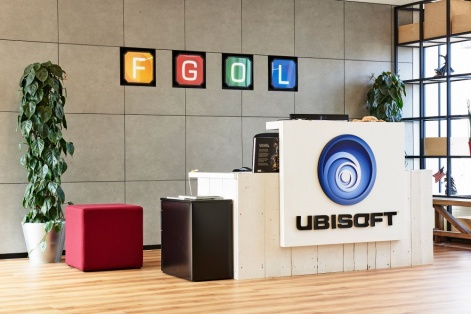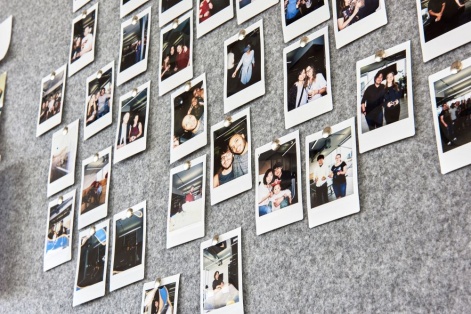The games industry can be both brilliant and rewarding, however there can also be a darker side to it.
Though it’s currently going through a period of transition that is seeing demanding work environments and toxic cultures brought to light more than ever - and the subject of unionisation becoming a hot topic - it’s still got a lot to learn
One of the worst examples to be put under the microscope in recent times was the sexist work culture rife at Riot Games, with another shining a spotlight on the culture of crunch apparent at Grand Theft Auto makers Rockstar.
Meanwhile the first three months of 2019 saw more than 1,500 people lose their jobs in games. Though the likes of EA and Activision have laid off hundreds of employees, one industry giant seems to have been able to get by for the most part without mass layoffs - though it has not been able to escape redundancies and closures completely.
Ubisoft was formed in 1986 by the Guillemot family and over the decades has established itself as more of a family-friendly company than evil corporate overlord. A big part of this, in recent times, has been how the publisher treats its 13,000 staff across its network of studios.
One of these studios is the UK-based Hungry Shark series developer Future Games of London, which was established in 2009 before being acquired by the French publisher in 2013.

Speaking to PocketGamer.biz, managing director Ian Harper addressed FGOL’s working environment and common criticisms such as if staff have a safe space to vent their frustrations.
“Managers are encouraged to have regular one-to-ones with each of the individuals they manage, so there is always a forum where any concerns can be raised,” says Harper.
“We also have second managers that they can approach or our HR team. There’s also a feedback letterbox in the kitchen that anyone can post a comment in, which seems to mainly attract the more amusing kinds of suggestions and commentary.
“We have an open-door policy here too. As head of the studio, I like to encourage teams to come to me directly with any ideas or concerns.”
Crunch factor
One of the games industry’s most controversial topics of debate is crunch – a time in development that requires long-hours to get the project complete or reach a certain milestone.
We view our development process more like a marathon than a sprint, so it makes no sense to have a crunch cultureIan Harper
For Harper, with the nature of mobile games moving to live operations, he doesn't see crunch as something that's sustainable for staff.
“At FGOL we work on projects around 18 months to release, then we support the live games with updates every six weeks for many years. This means we view our development process more like a marathon than a sprint, so it makes no sense to have a crunch culture,” says Harper.
“We can’t have people burning out when we’re supporting the games for years and years, so we ensure people are not being asked to do regular overtime and also that they’ve taken their holidays to refresh.
“That’s not to say people don’t occasionally want to work overtime in order to complete a release or update to the best quality and meet a deadline, but if that does happen they will take the same number of days off they worked overtime. We have a flexitime policy and trust teams to manage their workload; HR and management follow closely to be sure there is a good work-life balance.”

When asked how Harper would describe work culture at FGOL, he simply replies: “diverse, curious and flexible”.
There’s always more that can be done to combat unfriendly work environments. In FGOL’s case, Harper says it’s been working hard to ensure the studio is a good place to work in not just for the short-term, but the long-term too.
To that end, two years ago it moved into “more modern and suitable” offices that he says were designed to include break areas, with meeting rooms on a separate floor. It’s also implemented other initiatives to keep staff happy.
“We’ve introduced flexible office hours to make life easier for both parents and commuters, our pension and holiday allowances are now higher than most of the competition, and we provide healthcare and dental cover and income protection insurance,” explains Harper.
“We introduced our first project bonus scheme in 2015 and have paid the team good bonuses every six months since.”
That’s not to say people don’t occasionally want to work overtime in order to complete a release or update to the best quality and meet a deadline,Ian Harper
Now that further measurements have been introduced to help office life become more stress-free, looking forward Harper says the studio is investing more in staff training and working closely with other studios.
“Roles like data analyst and user acquisition specialist tend to be a little lonely in a studio, so it’s good for them to meet with their peers at other studios and share their experiences,” he says. “This in turn increases expertise at the studio and allows us to make even better games.
Harper adds: “Over the next few months, we’re doing company-wide agile training and hosting a user experience workshop in the studio. We’re having more regular external speakers come in to help inspire that culture of curiosity and creativity.
“I’m also working with the studio on defining our values and culture, so we can better understand who we are and explain what makes FGOL different from other studios, but also what makes it a ‘Ubisoft’ studio and part of the Ubisoft family.”
Ideology
This ideology that Ubisoft has integrated seems to be taking on new modern ideas and bringing them into fruition.

FGOL is due to hit a decade in action next month. With that, it intends to continue its mindset of equal values by adapting to new work structures over time, bringing in an outcome that will service all in the mobile studio.
“We feel our staff represent a more modern culture than we read about on sector news sites, with high female representation and equal pay distribution and a good work-life balance,” says Harper.
“We’re aiming to complete the values and vision by the company’s 10th birthday in September.”
To find out more about the studio, we previously spoke to Future Games of London’s Elizabeth Sampat on being a creative director and the truth about the 'Idea Guy'.






















